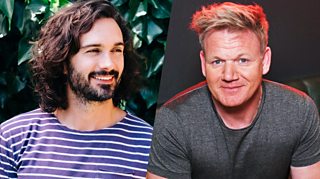Mark Cavendish: Nine things we learned when he chatted with Joe Wicks
Mark Cavendish is one of the greatest cyclists in history. He’s won Olympic silver on the track, world championships on the track and the road and 30 Tour de France stages. On The Joe Wicks Podcast he talks to Joe about the goals he still has, being diagnosed with depression and his life-long obsession with Lego.
Here are nine things we learned...
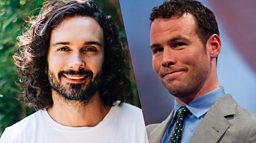
1. Mark can’t run a kilometre
Nobody could question Mark’s fitness. He’s got 30 Tour de France stage wins and armfuls of medals to prove it. However, he says that he is made for one thing: cycling. Ask him to try other sports and he can’t do it. “Cycling is my job. It’s what I do every day, so my body is conditioned to it,” he says. “As a professional, I have a certain level of fitness. But if I went running, you’d never think I was an athlete. I couldn’t run a kilometre down the road.”
I’m not that naturally gifted at cycling… I had to work out how to win and how to use tactics.Mark Cavendish
2. He’s not a natural cyclist
Mark says that becoming one of the best in the world is not down to natural ability. Cycling is his passion but he says his body is not designed for it. He had to become mentally better than everyone else in order to win. “Physically I’m actually not that good,” he says, shockingly. “I’m not that naturally gifted at cycling… [When I started] I wasn’t that strong, so I had to work out how to win and how to use tactics.” He says that winning tactically has become tougher as races have become more about sheer strength and speed. “They just put the finishes at the top of hills and that’s just power-to-weight ratio. That’s made it harder for me to win.”
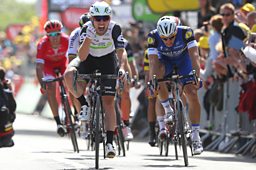
3. He wants to win the most Tour de France stages
I’ve got nothing left to prove. I’ve got nothing else to do.Mark Cavendish
Mark has won 30 stages in the Tour de France, the second highest number of all time. Only Eddy Merckx has more, with 34. Merckx is Mark’s hero and Mark’s aiming to match his stage wins, not because he’s always wanted to, but because he needs a new goal. “I’ve done everything I can do,” Mark says. “I’ve got nothing left to prove. I’ve got nothing else to do. With anything in life, you’ve got to find motivation and goals. It’s not even anything I planned to do. It’s something that has to come because there’s nothing else to do. I’ve won everything I could possibly win.”
4. He didn’t believe in depression until he was diagnosed
Being a professional sportsperson is incredibly mentally taxing. Two years ago, Mark was struggling with his mental health and went to seek help. “I got diagnosed with depression a couple of years ago,” he says. He’d never considered he might be depressed, because he thought depression was a myth. “If you’d spoken to me three or four years ago, I have to be totally honest, I would have said depression is an excuse; you can snap out of it. I was one of those people who doesn’t believe it. For someone who doesn’t believe it to [be diagnosed], it shocks you and you feel guilty.”
4. Mark Cavendish didn’t believe in depression until he was diagnosed with it
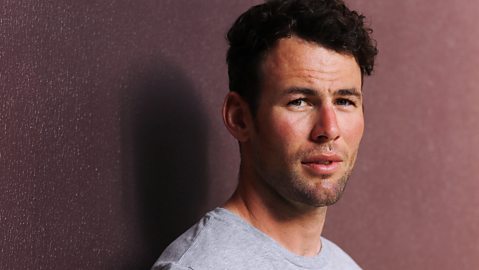
Mark Cavendish: "In professional sport, mental illness will be perceived as a weakness."
Mark Cavendish talks about his struggles with mental illness on The Joe Wicks Podcast.
5. He says the best way to manage his depression is by talking
Mark says that his depression made him very difficult to be around, but he realised that the most effective way for him to deal with it was to be with someone positive, like his wife Peta. “The most important thing is having someone you can talk to,” he says. “Even if you’re not talking about where you are [mentally], just having someone who you trust and makes you positive. You don’t have to talk about your problems. You just need to talk to somebody… A smile can change my whole mindset.”
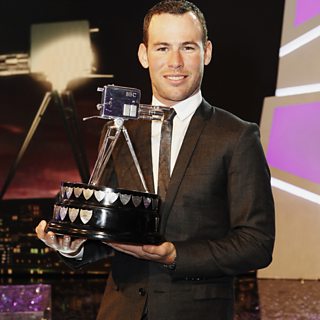
6. He’d prefer to ride motorbikes professionally
Mark says that everybody from the Isle of Man, his home, is to some degree interested in motorbike racing. “Motorcycling is in the blood of Manx people,” he says. As a kid, he was a big fan of motorbikes and would have gone in that direction professionally if it wasn’t so expensive. “We didn’t have the money for motorbikes, simple as that. I love motorbikes and if I could ride motorbikes professionally, I’d stop cycling tomorrow.”
7. He has Epstein-Barr virus
“I had a massive year in 2016. I got silver in the Olympic games; I was world champion on the track; I was silver at the world championships; I wore the yellow jersey in the Tour de France. Nobody had ever been world champion on the road and track at the same time… It took its toll the year after. The body just said 'enough'. And I got sick.” The sickness, which made him completely physically exhausted, was Epstein-Barr virus. “It's glandular fever,” Mark explains. “I got it when I was a teenager… It goes dormant, but it never leaves your system. It's like a coward disease... If you're mentally stressed, or physically tired, when you are at your lowest point that's when it comes back… It came back after that big 2016… You have to sleep like 20 hours a day… The only way to get over it is rest.”
8. His son is a mini Mark
Mark has four children, including one stepchild. He says his youngest, Casper, is so like him they’re practically the same person. “He doesn’t just look like me. He is me,” Mark says. “He’s wild and when I was a kid I was wild. He’s obsessed with bikes. He’s not just obsessed, it’s a sickness… He doesn’t watch Peppa Pig and stuff. He just wants to watch cycling videos.” Mark says he doesn’t especially want his son to follow him into cycling, “but I’ll support the kids 100% in whatever they want to do.”
9. He’s obsessed with Lego
Mark has used the same relaxation technique for years: he builds Lego models. “Even when I was younger and wilder, I did this. I love Lego,” He said he’s found it a great way to relax, especially on rest days, when he’s not supposed to expend any unnecessary energy. “It’s quite a mundane task… You just sit there and you do it… I think [it uses] the same part of your brain that’s used for meditation.” As well as Lego, he’s also recently turned to art for relaxation. “I took up drawing recently too. I couldn’t draw a stickman, but I did a couple of tutorials on YouTube and I enjoy it.”
More from The Joe Wicks Podcast
-
![]()
The Joe Wicks Podcast: Mark Cavendish
What’s the one thing that makes life better? Joe Wicks talks to cyclist Mark Cavendish.
-
![]()
Robin Arzón: Nine things we learned when she spoke to Joe Wicks
The runner, super-athlete and author shares her fitness tips with Joe.
-
![]()
Gordon Ramsay: Nine things we learned when he talked to Joe Wicks
What happened when Joe spoke with the superstar chef.
-
![]()
Melissa Alcantara: Nine things we learned when she chatted to Joe Wicks
Joe talks to the influential personal trainer.


